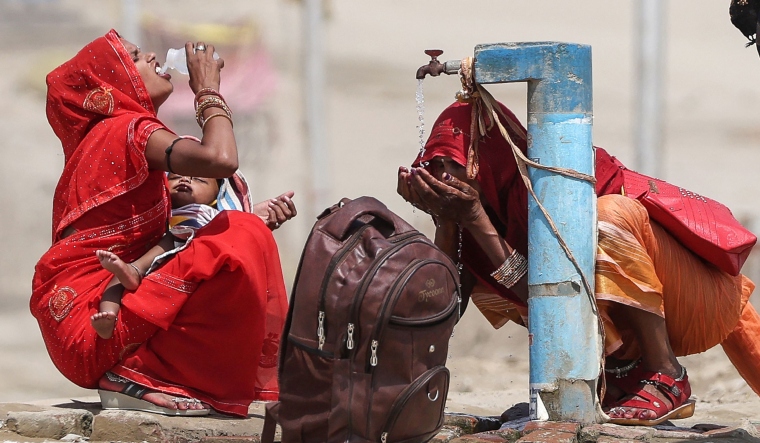Increased blood volume, enhanced cardiovascular strain and hormonal changes are some of the reasons that put expectant mothers at greater risk during heatwaves.
Dr. Priyanka Suhag of CK Birla Hospital's Department of Obstetrics and Gynaecology in conversation with THE WEEK. Excerpts
What is the mechanism through which heat waves impact an expectant mother and the fetus?
Increased ambient temperatures can raise a pregnant woman's core body temperature, potentially leading to hyperthermia. Heat exposure increases sweating, which can lead to dehydration if fluid intake is insufficient. Dehydration reduces blood volume, decreasing blood flow to the placenta. Pregnant women have a higher metabolic rate, generating more internal heat.
ALSO READ | Why you need a doctor to check rhythm of your heart
For the fetus, there might be insufficient flow of blood to the placenta. This impairs oxygen and nutrient delivery to the fetus and thus affects its growth. Dehydration can lead to decreased amniotic fluid levels, which are crucial for fetal development.
Can these impacts cause permanent damage too?
Neural tube defects (birth defects of the central nervous system) are caused by hyperthermia, especially during the first trimester. Such as spina bifida. Prolonged heat exposure can result in lower birth weights due to compromised placental function and reduced fetal growth. Heat stress can trigger preterm labor, potentially leading to developmental issues associated with premature birth.
What makes expectant mothers more vulnerable?
Physiological changes such as increased blood volume make a woman more prone to overheating and dehydration. Hormonal fluctuations can affect the body's ability to regulate temperature.
The cardiovascular system is already under stress during pregnancy and coping with heat just makes it harder. Pregnant women have a reduced capacity to dissipate heat due to increased insulation from body fat and the metabolic demands of the fetus.
When staying in is not an option, what can expectant mothers do?
Drink water regularly to stay hydrated. Electrolyte solutions can also be beneficial. Wear lightweight, loose-fitting, and light-colored clothing to reflect heat and allow for better air circulation.
Plan outdoor activities for the cooler parts of the day, such as early morning or late evening. Seek shaded areas or take frequent breaks in cooler environments to avoid prolonged direct sun exposure. Use portable fans, cooling towels, or misting sprays to help reduce body temperature.
Top five tips for staying safe:
1. Drink plenty of fluids, avoiding caffeine and sugary drinks which can contribute to dehydration.
2. Use air conditioning or fans at home, and take cool showers or baths to lower body temperature.
3. Reduce physical activity during peak heat times and avoid strenuous exercise.
4. Opt for breathable, loose-fitting garments made from natural fabrics like cotton.
5. Keep an eye on weather forecasts and heat advisories to plan activities and take necessary precautions



